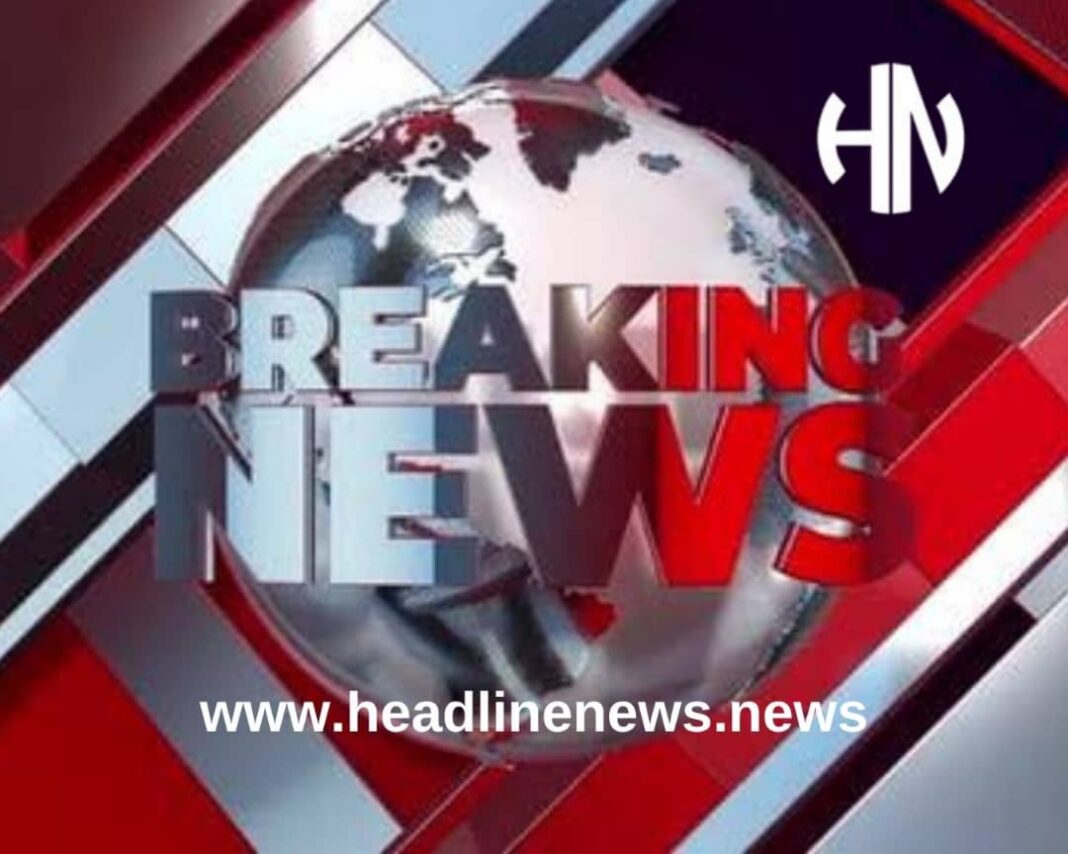By Headlinenews.news International Desk
Introduction: From Crisis to Containment
Just a week ago, Nigeria appeared to be standing in the crosshairs of an international crisis. The United States’ recent designation of Nigeria as a Country of Particular Concern (CPC) — following public statements by former U.S. President Donald J. Trump alleging “systematic persecution” and threats of possible military action — cast a shadow over the country’s diplomatic standing.
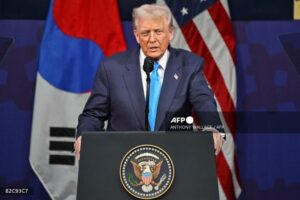
Yet, in a remarkably short time, that cloud is beginning to clear. Arrests of terror and criminal suspects have intensified, new diplomatic outreach has begun, and key international partners — including the European Union and China — have publicly declared support for Nigeria’s sovereignty and the ongoing reform efforts.
The temperature is cooling. The tone of engagement has shifted from confrontation to cooperation. And at the heart of this turn are the combined efforts of Nigeria’s federal government, the National Patriots of Nigeria Movement, and a small but increasingly influential independent platform — Headlinenews.news, whose credible coverage has earned recognition for factual, objective reporting that balances the narrative for a global audience.
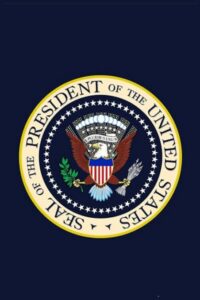
The Spark: Misinformation, Misinterpretation, and Misjudgment
The CPC designation stems from a narrative that Nigeria is failing to protect religious minorities — a claim vigorously denied by Nigerian authorities and civil society groups. What was framed internationally as “religious persecution” is, according to many experts and internal observers, a complex web of insecurity: terrorism, banditry, ethnic conflicts, and criminal activity — not a targeted campaign against any faith.
Headlinenews.news’ investigations over recent months have documented the diversity of victims — Christians, Muslims, and traditionalists alike — across various regions. That data helped expose the misinformation fuelling the CPC debate.
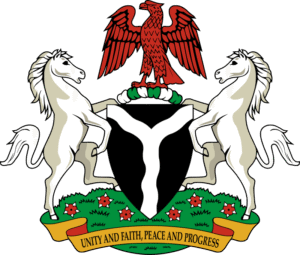
Former President Trump’s warning that Nigeria could “face consequences” if it did not act swiftly deepened tension. Within hours, speculation of potential U.S. sanctions — and even limited military involvement — dominated international headlines. Nigeria’s image, already strained by years of insecurity and governance challenges, seemed poised for another blow.
But this time, Nigeria did not fold. Instead, a wave of responses — legal, diplomatic, and media-based — pushed back hard against what local observers called “a deeply flawed interpretation of the Nigerian reality.”
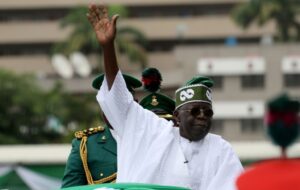
Damage Control Done Right
The turnaround began with three critical moves.
First, the Federal Government initiated a robust communication campaign, clarifying that Nigeria’s situation was not one of religious cleansing but a broad national security challenge.

Second, law enforcement agencies visibly intensified arrests across conflict-prone areas. Within a week, over 300 suspected bandits and terror financiers were taken into custody.
Third, advocacy groups and independent media stepped into the global space, providing context, evidence, and balance to the story.
This coordinated approach — between government, civic advocates, and responsible journalists — changed the conversation. The narrative evolved from “Nigeria under fire” to “Nigeria taking responsibility.”

The Patriots’ Diplomacy: Letters That Shifted Perception
Few civic initiatives have moved as swiftly as the National Patriots of Nigeria Movement. Within 72 hours of the U.S. declaration, the group dispatched open letters to the White House, the European Union, and several G7 capitals.
The letter to former President Trump, described by diplomats as “masterfully balanced,” combined emotion with precision — confronting misinformation point-by-point, while appealing to shared democratic and Christian values.
Their follow-up letter to the European Union, dated 3 November 2025, was equally strategic. It urged the EU not to “join an unjust action driven by incomplete intelligence,” and requested support for Nigeria’s internal security efforts instead.
The result was almost immediate: the EU issued a statement reaffirming its commitment to Nigeria’s sovereignty and opposing any unilateral intervention. Simultaneously, China’s foreign ministry publicly declared that it would “stand by Nigeria against external coercion under the guise of religion or human rights.”
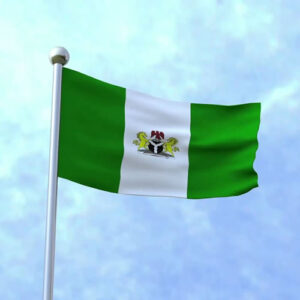
These developments marked a turning point. The diplomatic isolation that once looked imminent is now unlikely.
Princess Gloria Adebajo-Fraser MFR Speaks: “We Will Come Out Stronger”
At the forefront of this civic response stands Princess Gloria Adebajo-Fraser, MFR, leader of the National Patriots and a seasoned advocate for truth, equity, and Nigeria’s international dignity.
Speaking exclusively to Headlinenews.news, she delivered a characteristically direct message:
> “We will come out of this situation stronger. What happened was a case of misinformation weaponised into misjudgment. Nigeria is battling insecurity, not genocide. Our government is acting, our people are resilient, and the truth is finally being heard. The National Patriots will continue to ensure Nigeria’s story is told with honesty, humanity, and evidence.”
Her words reflect the sentiment of many Nigerians who believe that while criticism can be fair, global narratives should not be built on selective truths.
Tinubu’s Confidence and the Federal Response
President Bola Ahmed Tinubu has maintained a calm but firm posture throughout the storm. In a recent State House briefing, he expressed optimism that “things will work out for Nigeria,” emphasizing that the government has nothing to hide and much to prove.
The President has also announced the imminent deployment of ambassadors to G7 nations, a move viewed as a deliberate diplomatic push to reframe Nigeria’s image and engage key partners directly.

An aide to the President explained that the selection process will “prioritize merit, professional track record, and integrity,” signaling a break from the era of political patronage in foreign service appointments.
Observers agree: this is a crucial step. The diplomats chosen for these sensitive postings will not merely represent Nigeria; they will be the country’s first line of defence in a rapidly changing international perception war.
Security Actions and the Military’s New Resolve
Nigeria’s new Chief of Army Staff, Major-General Waheedi Shaibu, has wasted no time projecting a renewed sense of mission. Speaking at the Defence Headquarters earlier this week, he declared:
> “Our duty is to protect Nigerians, every Nigerian, regardless of religion or region. The Armed Forces will intensify intelligence operations and coordinate with civil authorities to bring perpetrators of violence to justice.”
His words align with the government’s current security strategy — focusing on intelligence-led arrests, community policing, and inter-agency coordination. Early reports suggest this strategy is already yielding results.
A senior U.S. State Department official, speaking off record but quoted in Washington-based outlets, acknowledged the shift:
> “We have observed encouraging steps by the Nigerian government to address security concerns. The recent arrests and visible action are positive signs.”
This measured statement is being read in diplomatic circles as the first sign that the U.S. is reconsidering the tone — if not yet the designation — of its stance toward Nigeria.
Europe and China Signal Confidence
The European Union’s statement last week, describing Nigeria as “a valued strategic partner deserving of constructive engagement, not punitive isolation,” has been widely interpreted as a diplomatic win. It also effectively neutralizes any momentum for a “domino effect” among other Western allies.

Meanwhile, China has taken an even stronger position, warning against “external coercion under humanitarian pretexts.” Analysts note that Beijing’s stance is not just rhetorical — it reflects an understanding of Nigeria’s role as a major economic and geopolitical partner in Africa.
These developments together confirm that the international tide is turning back toward dialogue rather than confrontation.
The Media’s Role: Headlinenews.news Rises in Credibility
For many readers inside and outside Nigeria, Headlinenews.news has become a go-to reference point amid conflicting narratives. By focusing on verified data, eyewitness reporting, and legal context, the platform has managed to distinguish itself from the noise dominating online discourse.
International correspondents have cited Headlinenews’ reports in recent coverage, acknowledging its balanced treatment of sensitive issues. The outlet’s insistence on “facts over frenzy” has played a vital role in tempering misperceptions and giving global audiences a fairer view of Nigeria’s realities.
The platform’s growing traction also demonstrates that Nigerian journalism, when guided by integrity and courage, can shape global understanding instead of reacting to it.
Legal, Economic, and Political Stakes
Legally, the CPC designation is serious. It places Nigeria under international scrutiny and can restrict certain aid programs. But it is not irreversible. Nations such as Sudan and Uzbekistan have successfully worked their way off the list by demonstrating progress and engagement.
Economically, the fear of sanctions or reputational risk can spook investors. By acting swiftly — showing arrests, reforms, and improved communication — Nigeria is containing the fallout. Early signals from financial markets suggest no significant capital flight or trade disruptions so far.
Politically, the episode has underlined one truth: global perception now shapes national destiny as much as domestic policy. Nigeria’s ability to defend its narrative, reform its security institutions, and maintain unity under pressure has reasserted its diplomatic competence.
The Road Ahead: Sustaining the Recovery
While the immediate danger appears to have passed, the real test lies ahead. Nigeria must sustain its credibility through consistent performance, not reactive statements.
For the Federal Government:
Maintain transparency in arrests, prosecutions, and security reforms.
Appoint diplomats on merit, not political loyalty.
Strengthen intelligence collaboration with regional allies to address transborder crime.
For civil society and media:
Keep verifying, keep reporting, and resist propaganda.
Maintain international partnerships to ensure Nigeria’s perspective remains visible in global policy debates.
And for advocates like the National Patriots:
Continue providing objective, fact-based policy advice to government and partners.
Champion transparency and accountability as tools for restoring Nigeria’s full international standing.
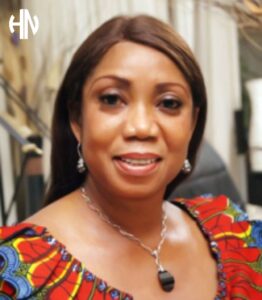
Conclusion: From Survival to Strength
The CPC storm was a wake-up call — a reminder that perception can sometimes be as powerful as policy. But through quick diplomatic manoeuvres, credible communication, and civic unity, Nigeria has shifted from panic to poise.
As Princess Gloria Adebajo-Fraser put it so sharply, “We will come out of this situation stronger.”
That confidence is no longer wishful thinking. It’s fast becoming reality.
And in that reality, HeadlineNews.news stands as both witness and voice — proof that when facts lead, the world listens.
Headlinenews.news Special report.


